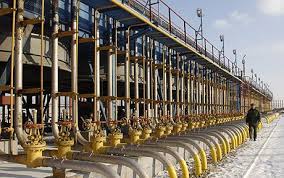The establishment of a regional natural gas trading hub in Greece is perfectly feasible following 2018 or 2019, according to a study conducted by the Institute of Energy for South East Europe (IENE) in association with local gas sector companies and authorities.
The country’s gas sector infrastructure is expected to develop considerably over the next five-year period. One, or possibly two, major interconnection pipeline projects, as well as smaller ones, are scheduled to begin operating during this period, while other gas infrastructure additions, such as new floating LNG terminals, and, possibly, a new gas storage facility, are being planned.
This overall infrastructure development creates an appropriate setting for the establishment of a gas trading hub that would function as a commodity exchange along the lines of nine other hubs currently operating in Europe, the study noted. Commodity prices at these existing exchanges are negotiated for excess quantities of gas not included in long-term contracts.
The main prerequisite for the establishment of a trading hub in Greece, according to the IENE study, is the existence of satisfactory gas quantities that can be ensured from various entry points. The hub’s commercial activity will concern marginal volumes, or excess quantities, as the majority of natural gas amounts traded in the region are done so through long-term contracts.
According to the study, a prospective Greek gas trading hub could begin by trading amounts of 500 million cubic meters, annually, and could gradually reach a level of 1.5 billion cubic meters. In the longer-term, the hub’s gas trading activity could reach a level of six billion cubic meters, or even 10 billion cubic meters, by 2025, the IENE study anticipated.
Besides the establishment of a Greek gas trading hub, to be based in northern city Thessaloniki, which would facilitate trading in the wider region’s north and west, the IENE study also believes that an additional hub, in Istanbul, for trading deals covering the wider region’s east, could also be developed. In fact, greater progress has been made in the preparations for the Istanbul venture.
The establishment of a gas trading hub in Greece could help reduce gas price levels, as has been the case through other European hubs, according to the study. Price levels at other EU energy exchanges are between 25 and 30 percent lower than import price levels secured through long-term contracts.
The study’s findings will be further discussed at “Energy & Development 2014”, a long-running energy conference, to be staged in Athens next week. Greece’s energy future will be the main theme at the upcoming conference.





